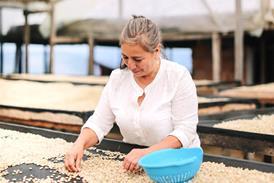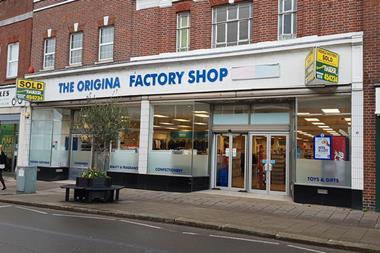
Public institutions that buy food and drink with taxpayers’ money are “alarmingly” vulnerable to modern slavery risks in their supply chains, a new report has claimed.
Public sector organisations such as schools and hospitals lack the resources and legal power to effectively address potential labour exploitation threats in their operations, found a report by leading universities alongside anti-slavery charity Unseen UK and the London Universities Purchasing Consortium.
Unlike supermarkets, which are increasingly applying rigorous scrutiny to their suppliers and regularly publishing modern slavery reports, public sector purchasers “ask very little of suppliers around modern slavery risk management”, the report said.
Researchers interviewed dozens of professional buyers and sellers working in the public sector, as well as consultants to public institutions, to identify their enforcement of labour exploitation requirements during the tendering process.
The findings pointed to a “lack of legal mandate to tackle modern slavery and climate change in the public sector’s operations and supply chains”, meaning relevant resources are not regularly made available within organisations like schools, universities and hospitals.
Companies that have poor labour rights records cannot be disqualified from public tendering, it found, and public sector organisations that encounter potential cases of modern slavery often do not know how best to protect vulnerable individuals in those situations.
The latter was mainly attributed to public buyers “lacking awareness” of issues such as labour exploitation and other unsustainable practices, unlike their counterparts in the private sector .
Public sector purchasing frameworks put a “minimal focus on modern slavery risk management”, which “allows unethical companies to slip through the cracks”, experts found.
The report, commissioned by the Modern Slavery and Human Rights Policy and Evidence Centre, said the role of public procurement could be a “powerful method for driving responsible behaviours into public and private operations alike”.
“Public buyers procure a very wide range of goods from laboratory equipment to food, clothing to machinery, depending on their organisation’s role in delivering public services,” it said.
“As with private firms, public buyers are exposed to risks of buying goods made from child and forced labour and buying goods made from or on land that was previously rainforest, for example.
“Unlike private firms, however, public organisations, spending public money, have a duty to both get the best value for taxpayer money and to ensure that the reputation of the public sector is not endangered through association with such risks.”
Read more: Food and drink companies ‘failing’ to tackle labour abuse risks
The research comes amid an increasing number of alleged modern slavery incidents across UK food and drink supply chains – many of which are reportedly taking place within companies accredited to use government employment schemes.
Unseen head of policy & research and report co-author Lauren Saunders added: “It is important that public bodies purchase items and services in a way that does not harm people or the planet.
“Through this research we want to put a stop to companies cutting harmful corners to save money only to then profit more from taxpayers’ money.
“We are calling on the government to do more to enforce regulations and ensure companies operate by fair and ethical standards.”
The report’s authors - which included researchers from the Universities of Bath, Sussex and the West of England - urged government to enforce more checks during tendering processes to find suppliers, and make sure deals are awarded to companies that source their food ethically.
Ministers should implement a “clear mandate” across public institutions to address modern slavery and climate change risks in operations and supply chains, the authors added. They also called for sanctions on businesses that breached those requirements, in a bid to encourage greater scrutiny of supply chains.
“Our research shows that expectations on suppliers are minimal with regard to modern slavery – even just a commitment to comply with the UK Modern Slavery Act (2015) is sufficient to pass a public sector tender requirement, and evidence suggests many companies subject to the Act have yet to comply,” said Dr Johanne Grosvold of the University of Bath School of Management.
She added: “Currently, firms can only be disqualified from public tendering if successfully prosecuted for their part in modern slavery cases: this is extremely rare.”
“We recommend that the government introduces clauses into public tender legislation which mandate explicit disclosure of action taken to identify and manage modern slavery risks in operations and supply chains. Those disclosures could be scored against best practice, encouraging suppliers to take actions that can help them in public tendering,” Dr Grosvold said.



















No comments yet